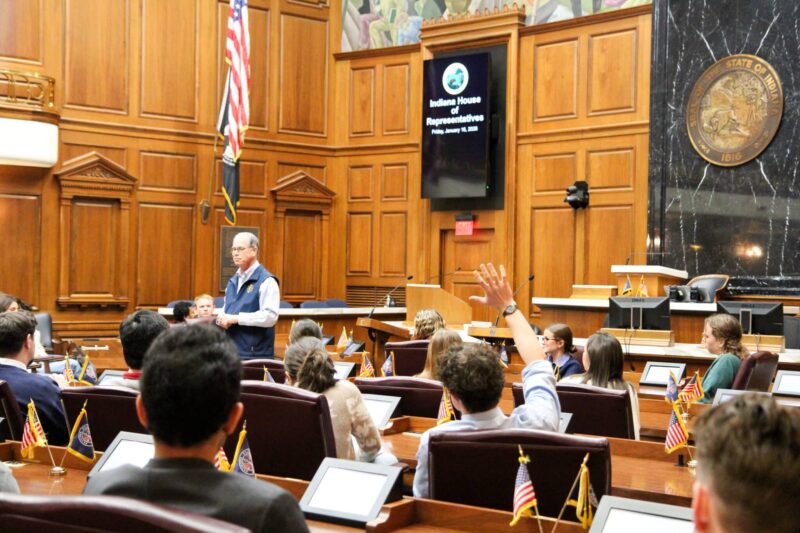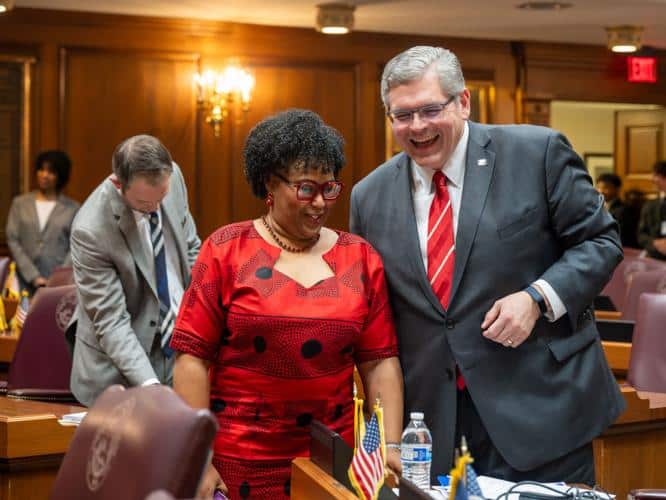The three members of the state’s high court—Chief Justice Loretta Rush and Justices Mark Massa and Derek Molter—also have a group of lawyers arguing that the trio should be retained and the judicial branch should not be politicized.
More on the first point in a moment.
As to the second point, well, sorry, but that horse left the barn a long time ago.
Once upon a time, most Americans considered the courts to be above or at least separate from partisan politics.
That is no longer the case.
For more than 50 years, the confirmation process for the U.S. Supreme Court and, ultimately, other federal courts has been a contentious process, one that has managed to erode both the prestige and the integrity of the judicial branch. Politicians from both parties have broken precedents, rewritten the rules regarding judicial confirmations and done everything they can to gain partisan advantages through court appointments.
It’s easy to see why the pols did this, particularly with Supreme Court appointments.
A person who has a seat on the nation’s preeminent court may serve for life. He or she also has awesome power that is almost unchecked by any conventional system of accountability—as Supreme Court Justices Clarence Thomas and Samuel Alito recently have demonstrated.
Because the high bench is the ultimate arbiter of what is constitutional and what isn’t, it determines the scope of individual rights, the parameters in which government may be exercised and basic questions of who wins and who loses in fundamental conflicts between Americans.
There are few, if any, positions within government more powerful.
That’s why, for much of our history, judicial appointments—particularly U.S. Supreme Court appointments—were determined by a process that was less raucous and more reverent than most proceedings associated with government in this country.
Presidents selected members of the bench—again, particularly members of the high bench—with the idea of gaining as close to universal support or consensus as possible in mind. If the commander-in-chief didn’t approach it that way, then an appointment would be easy to block.
Far less than a majority in the U.S. Senate—just 41 out of 100 votes—could prevent a judicial nomination from moving forward.
It was, I suppose, just a matter of time before ambitious and unscrupulous leaders in the Senate realized that a majority that could block judicial nominations from going forward could use this power not to create consensus, but to give the party not in power disproportionate power.
That led to the creation of a so-called nuclear option—allowing a nomination to move forward with only a bare majority—that soon became the normal option.
This has resulted in increasingly partisan and ideologically extreme nominations and appointments to the U.S. Supreme Court and the federal court system. With no institutional safeguards to encourage consensus candidates for lifetime appointments, the system now elevates jurists who too often recognize neither precedent nor common sense.
Worse, just as the rabid partisanship that long has dominated Congress now is contaminating state legislatures across the land, state court systems now have become more and more politicized.
This is not a good thing.
In the big picture, a politicized bench undercuts faith in the rule of law. Without faith in the rule of law, a self-governing society cannot function.
Closer to the ground, it also encourages otherwise intelligent people to make foolish choices.
In the case of the fight here in Indiana to remove three state Supreme Court justices, proponents of the move doubtless are tantalized by the prospect of having Democratic gubernatorial candidate Jennifer McCormick make appointments to the bench, should she win.
The problem is that a McCormick victory is far, far, far from assured.
If she loses and the “don’t-retain” crowd wins, Republican Mike Braun will make the appointments. Braun has the backbone of a wet tissue, so his running mate Micah Beckwith and Attorney General Todd Rokita likely will have loud voices in making the selections.
If that happens, we’ll end up with a Supreme Court somewhere to the right of Genghis Khan.
The solution to this problem does not involve dragging the court further into the political process.
That’s what got us into this mess in the first place.









